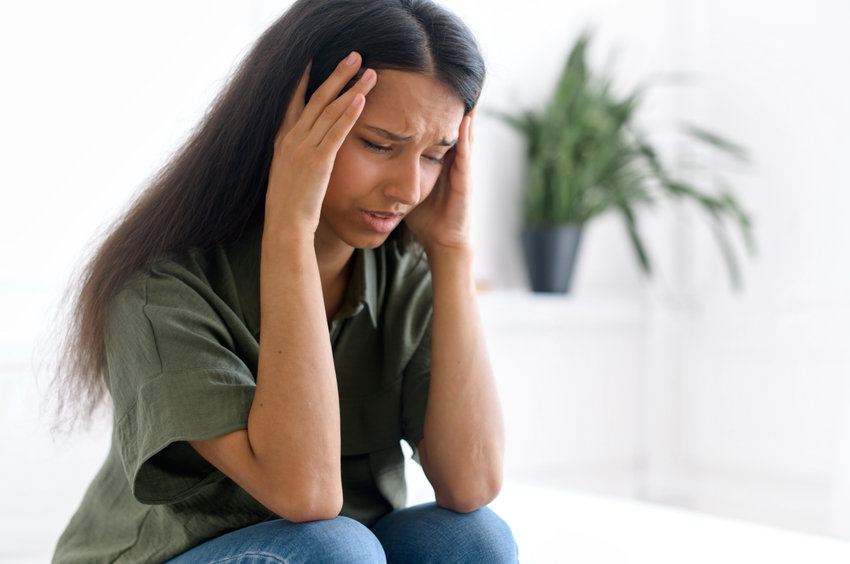According to the ADA, around 40 million Americans currently suffer from the effects of anxiety. With so many people with anxiety, it’s no wonder this disease has subtle signs and symptoms that can quickly escalate and lower someone’s quality of life. Fortunately, there are signs you can look for if you believe you or a loved one are currently suffering from anxiety. Below are some of the most common signs.
1. Feeling Scared for No Reason
When someone experiences anxiety, it is the body’s reaction to a stressor. This stressor, also known as anxiety triggers, releases a hormone in the body known as adrenaline that causes the classic symptoms of anxiety. These can include:
-
- Racing heart
- Sweaty palms
- Nausea
- Digestive issues
- Feeling of impending doom
- Feeling of immense fear
Although you might already know that these are symptoms of anxiety, it can be difficult to determine what your trigger is. This is especially true if it appears your anxiety comes out of “nowhere.” In reality, the subconscious mind can react to anxiety before you’re even aware of the danger.
If you’ve been feeling stressed from work, school, or anything else, these can all cause symptoms of anxiety even if there is no real “threat” in front of you. This is a classic sign of generalized anxiety disorder, a subset of anxiety disorders.
2. Always Stressed About Time
If you’re someone who is always punctual, this isn’t necessarily a bad thing. In fact, being punctual to events is a sign of someone who is responsible. However, if you begin to feel anxious at the thought of being late to an event, to the point where it causes you significant distress in your life, this could be a sign of social anxiety.
With social anxiety, people have trouble interacting with others in social situations. The fear largely revolves around how others will view them or potential embarrassment or ridicule. In some cases, this fear causes people to overcompensate in an attempt to avoid inconveniencing others or feeling embarrassed. It’s perfectly normal to want to arrive a few minutes early for an important event or meeting. However, if you find yourself stressing about punctuality for hours before hand or even arriving significantly ahead of time because of nerves, you may be dealing with an anxiety disorder.

3. Irritability
Anxiety isn’t always jitteriness or shy behavior. Sometimes, it comes across as being irritable or easily agitated. Small things like minor changes to plans or someone failing to hold up their end of the bargain can cause anxiety that manifests as snapping at friends or family, getting irrationally angry over seemingly trivial details, or full-blown emotional meltdowns.
This is especially true in people with post traumatic stress disorder, which is a subset of anxiety disorders. People with post traumatic stress disorder struggle to respond appropriately to triggers, leading to symptoms such as:
-
- Outbursts
- Hypervigilance
- Increased irritability
- Panic attacks
- Changes in mood
- Flashbacks
If you notice any of these symptoms and have experienced traumatic events, it might be a sign of PTSD.
4. Extreme Cleanliness
It’s normal for people to want to be clean and keep their home or office in order. However, some ritualistic and obsessive cleaning behaviors could be a sign of something else. If you find yourself constantly cleaning because you’re fixated on the fear of contamination or to fulfill an insistent compulsion, this could be another sign of anxiety. More specifically, you may have Obsessive-Compulsive Disorder, or OCD.
OCD is a complex anxiety disorder characterized by obsessions and compulsions. In the case of contamination OCD, people who clean obsessively worry that not cleaning means they will get incredibly sick, or one of their family members will be sick. If this sounds familiar and you struggle to control these impulses and intrusive thoughts, it may be time to look into getting help for your anxiety and OCD.
5. Intrusive Thoughts
Have you ever had a thought that caused you to worry that, perhaps, you were going crazy? Maybe it was a thought about crashing your vehicle, or running away and never coming back. It’s important to know that these types of thoughts are completely normal, and are known as intrusive thoughts.
Intrusive thoughts can actually be caused due to stress and anxiety, or just the opposite, can cause a significant amount of stress for people. For people with lots of intrusive thoughts, it can seem as if one is losing control of their mind!
Fortunately, intrusive thoughts are completely normal, and although distressing, can be managed with various forms of therapy for anxiety. These include ERP, known as exposure response prevention therapy, or CBT, known as cognitive behavioral therapy.

6. Increased Isolation
Living with anxiety can make it incredibly difficult to do even the simplest everyday tasks. Things like going to the grocery store feel monumental and require hours, if not days of prep time. Modern services like online shopping and contactless delivery feel like a godsend in that they allow you to get the things you need without having to struggle through social interactions or risk a potential catastrophe. However, as useful as these services are, they may lead to increased isolation as anxiety continues to take hold. If you find yourself unable to return texts or answer phone calls from concerned loved ones because your anxiety is too overwhelming, it may be time to get help.
7. Increased Fatigue
Anxiety is exhausting. Your body is in a near constant state of arousal, waiting to trigger your fight or flight response. It gets to the point where having anxiety causes anxiety, creating a never-ending feedback loop of stress and fear. With all of these overwhelming emotions and the physical side effects of untreated anxiety, it’s no wonder you may feel constantly rundown and in need of a long nap. Needing to sleep after conquering a task that caused major anxiety isn’t uncommon– but you also don’t have to live that way.
Finding Help
Anxiety disorders are both incredibly common and treatable. Finding help for an anxiety disorder may come in the form of medications to manage the biochemical components of your disorder, engaging in evidence-based therapies, or both. For those whose anxiety is coupled with harmful coping mechanisms like disordered eating, getting treatment for both conditions simultaneously is paramount for success. Eating Disorder Solutions offers co-occurring anxiety and eating disorder treatment tailored to you and your needs. You never have to do it alone. If you’re ready to get started on your recovery journey, reach out to us today.



